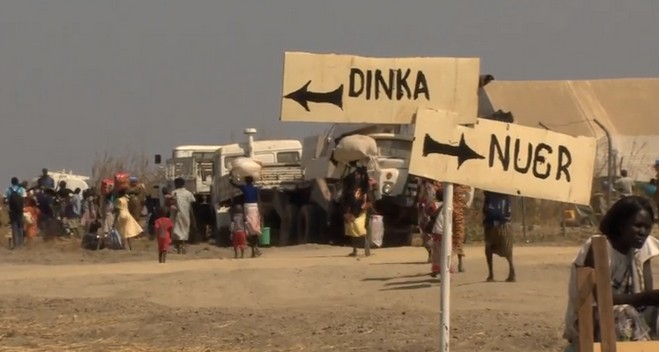In a working paper by David K Deng, writing on behalf of the South Sudanese Law Society (SSLS), the society has proposed a “Truth and Dignity Commission” that would seek to understand the varying historical narratives conceived by South Sudanese–which, the SSLS feels, have contributed and are contributing to the ongoing violent crisis in the nation–and then harmonize the varying narratives into one broadly acceptable common narrative.
The paper, “Truth and Dignity Commission: A Proposal to Reconcile the Many Truths of South Sudan from 1972 to the Present,” was published in August 2014 and is the third in a series of working papers developed by the SSLS to stimulate thought on issues of truth, justice and reconciliation in South Sudan’s peace process.
The Truth and Dignity Commission is proposed to investigate and report on human rights abuse patterns over the past four decades.
The authors stated that rhetoric from the warring parties in the current conflict clearly pointed towards unresolved historical grievances and contrasting narratives of past conflicts as a driver of violence, and concluded that South Sudanese needed to reconcile their conflicting historical narratives in one acceptable historical narrative that would reflect the diversity of the nation.
The SSLS posed a question it says all nations emerging from civil conflict must ask: whether to discuss openly the terrible events that characterized the war or to try to forget and move on, referencing Mozambique and Cambodia as notable examples of forgetting. The Truth and Dignity Commission would be part of a solution to dealing with past events in South Sudan.
The Truth and Dignity Commission would be a temporary body established to investigate and report on violations of international human rights and humanitarian law that occurred within South Sudan over its past four decades of history.
The Commission would be used alongside a truth-telling mechanism and other transitional justice mechanisms.
“If done well, …and if given the necessary resources and support, a truth commission can change how a country understands and accepts its past, and through that, if it is lucky, help to fundamentally shape its future,” the report quoted Priscilla Hayner, an expert on truth commissions and transitional justice, and who has worked on official truth-seeking measures in political transitions around the world.
The report also quoted Hayner to write, “There is never just one truth: we each carry our own distinct memories, and they sometimes contradict each other; but debunking lies and challenging dishonest denial can go far in allowing a country to settle on one generally accurate version of history. There are some facts that are fundamental enough that broad acceptance of their truth is necessary before real reconciliation can take place.”
By Day Blakely Donaldson
